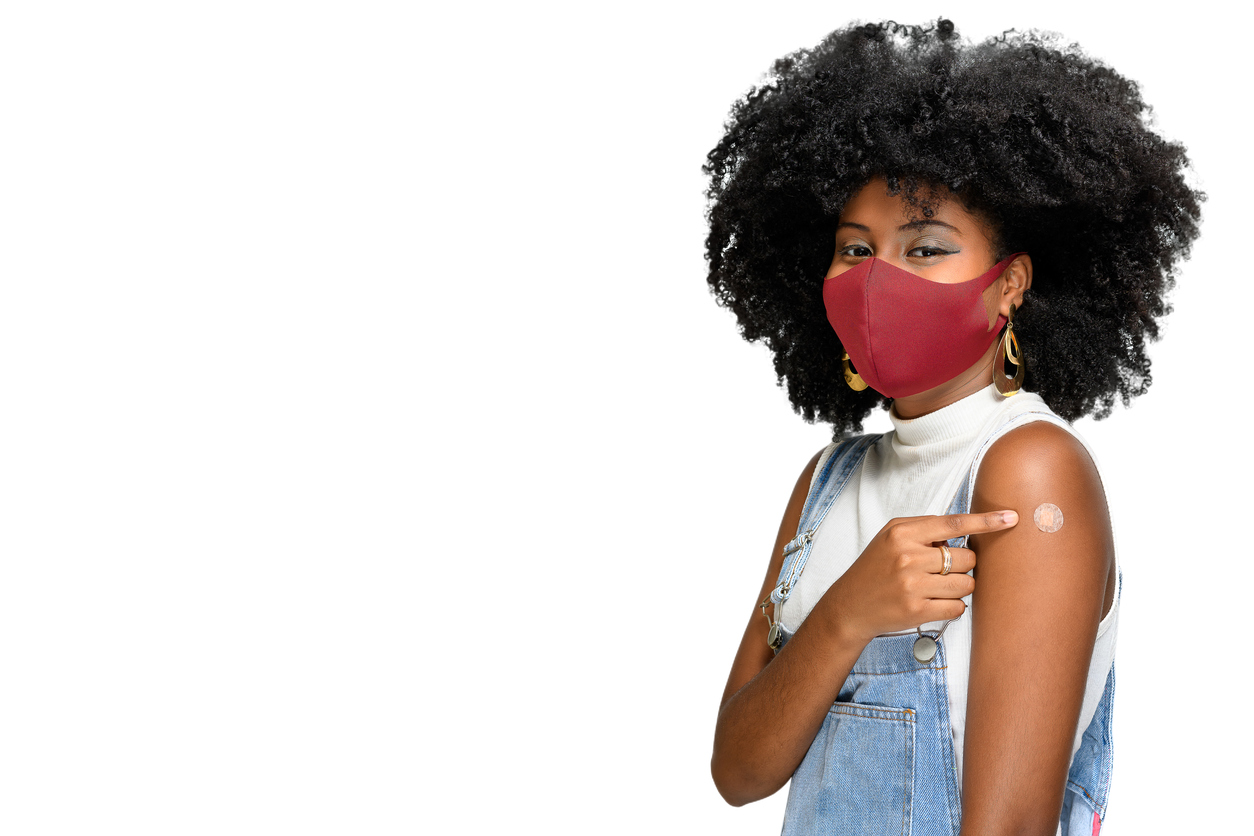Zing Health has been providing resources to keep seniors healthy and safe throughout the pandemic. The threat of COVID-19 infection will be with us for a while longer, so it’s important to continue to take steps to protect yourself against the virus -- and that includes getting vaccinated.
Dr. Trent Haywood, chief medical officer of Zing Health, said everyone who is eligible should get a COVID-19 shot because the majority of new cases diagnosed are primarily in unvaccinated people. Vaccines are widely available through pharmacies as well as clinics, and Medicare covers 100 percent of their cost. By immunizing yourself against COVID-19, you are less likely to catch a severe case or infect family members.
“You don’t want to spread illness to your family or the community in which you reside,” Dr. Haywood said. “If you believe in supporting your community and decreasing risk for the community, then you have reasons beyond your personal views for getting vaccinated. For example, some states are running low on hospital beds to treat not only COVID-19 but for all acute care, so getting vaccinated can help ensure access to healthcare will be available for you, your family, and your community when you need it.”
Correcting Vaccine Myths
With 185 million people and counting fully vaccinated in the U.S., the Centers for Disease Control and Prevention recommends COVID-19 vaccination for everyone 12 years and older, and booster shots for seniors who have already been fully vaccinated for six months or more. Approval on vaccinations for younger children is expected to be approved soon.
Even in “breakthrough” cases—when the Delta variant attacks people who are already immunized—all the COVID-19 vaccines are still very effective at warding off hospitalization and death.
The vaccine itself has few side effects, and for most people any symptoms are mild and don’t last long. “We are about a year into the vaccinations, and so far we haven’t seen substantial risk,” Dr. Haywood said.
While COVID-19 vaccines were quickly approved for emergency use, the truth is that their method had been in development for years, and controlled the SARS and MERS viruses with success.
Most importantly, the vaccine cannot give people COVID-19. Instead, the vaccine trains body cells to fight without ever contracting the virus. Staying unprotected can be deadly. “From a risk benefit analysis,” Dr. Haywood said, “most individuals should be willing to accept the data and undergo vaccination.”
Giving Health Equity a Better Shot
The coronavirus has had an especially fatal impact on minority communities. Blacks are twice as likely to die from COVID as whites. Yet despite the mounting evidence that the vaccine is a smart choice, people of color are getting vaccinated at lower rates and COVID-19 is more likely to circulate within minority communities.
Part of the problem is that the facts aren’t getting out to every community—Dr. Haywood noted that college-educated Blacks are getting vaccinated at higher rates—and some people simply find it harder to accept a worst-case scenario that plays out in isolated hospital rooms.
“When you start to look at socioeconomic status, you start to see delineations unfolding,” he said. “But you do have other issues that might be unique in the African American community related to trust or distrust related to the healthcare system.”
Access to healthcare also holds down vaccination rates. “The easier and more convenient something is, the more likely people are to adopt it,” Dr. Haywood said. “However, in some minority communities, it’s just more difficult to get the vaccination.”
Minority communities must not only protect themselves from the coronavirus, but also maintain their overall immune system heath. For instance, people of color are more likely to not get enough vitamin D. Exposure to sunlight helps the body manufacture vitamin D to strengthen the immune system. In fall and winter, there’s less outdoor activity to produce vitamin D. Healthy eating and vitamin supplements can fill the gap.
Getting Proof of Vaccination
Vaccination sites issue cards showing what vaccine was administered and when. These cards with the CDC logo are becoming more important. To keep the contagion from spreading, more places are requiring proof of vaccination to enter public facilities like restaurants, stadiums, and theaters. President Biden has even issued a mandate that all companies who employ more than 100 workers must have their employees vaccinated or tested weekly.
Travel restrictions are also evolving. Some states and territories require travelers to show proof of vaccination. International air travelers often need vaccination proof as well as preflight COVID tests. People who lose their vaccination card may have to return to where they got the shot to get another record of their immunization.
“Probably the reason why we keep pushing for everyone to get vaccinated is because we do want to get the best balance out of life,” Dr. Haywood said. “Obviously, that has behavioral and mental health components with being able to enjoy your life and seeing your family and being able to go to social gathering, whether it be that church or sporting activities and the like.”
Bottom line—get vaccinated and do what’s best for you, your family, and your community.
Y0149_B_010122021_C




